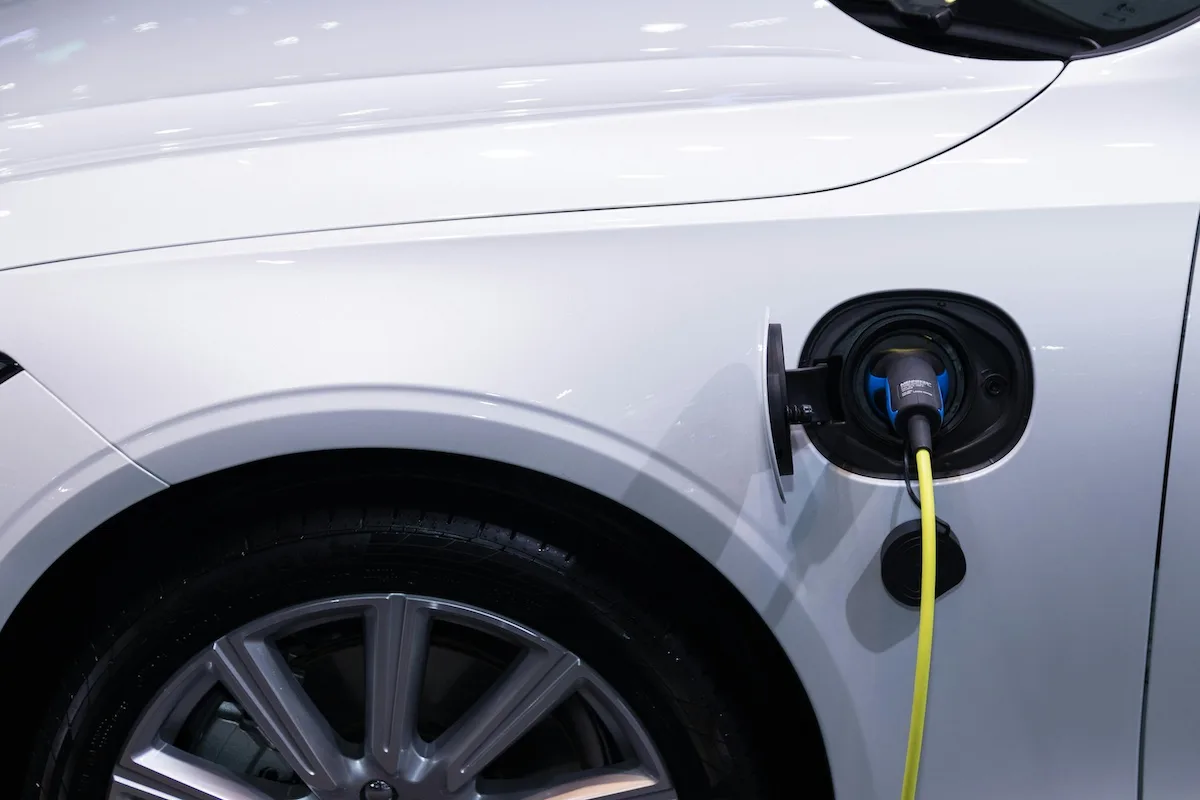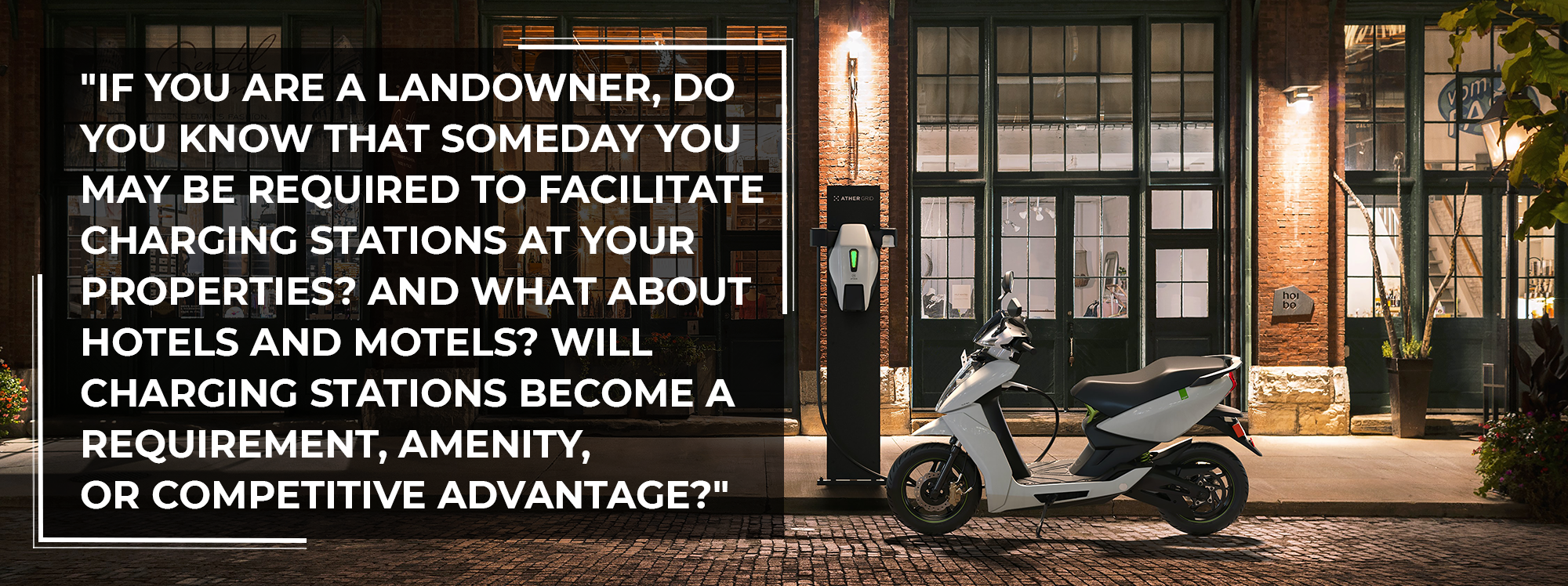
A World Without
Gas Stations
A World Without Gas Stations
by Steven Sharp
My father owned and operated a Mobil Oil gas station for about twenty years. Hence, the thought of a world without gas stations is about abstract as it gets, but that is where we are headed. The idea of electric drivetrains becoming the mainstream power plant in motor vehicles has progressed beyond the discussion point. Whether this shift is driven by the desire to reduce global warming, escape the ever-escalating costs of fossil fuels, or follow legislative mandates, the ball is in play. Electric Vehicles (EVs) are here to stay, will become the new normal, and we are well on our way to a world without gas stations.
From Evolution to Revolution
From what I have read, many experts agree it will take years before the Internal Combustion Engine (ICE) vanishes completely from our roadways. Still, the transition is likely to be an evolution that gathers momentum until it reaches the tipping point, which will feel like a revolution. We should not forget; it was not that long ago that the idea of owning an imported car seemed almost un-American.
Today, import cars dominate the landscape, have manufacturing plants in the United States, and the Big Three’s (GM, Ford, Chrysler) once-dominant position has eroded and left them clinging to life. There are many theories and beliefs about why this happened, but the truth is not all that complicated. Consumer habits and needs changed, and the Big Three did not embrace the change fast enough to remain a dominant player in the passenger car business.
Experience tells me the EV transition has put entire industries on a collision course to a shakeout not seen since the transition of horse-drawn carriages to automobiles. And just like the transition from horses to engines, some companies will make it, and sadly, some will not.
“At a minimum, every company should be prepared to answer how the migration to EVs impacts your Sustainability Score.”
The Transition to EVs is More Than a Consumer Choice
Unlike the consumer habit changes that led to the purchase of imported cars, primarily driven by fuel economy and quality concerns, the shift to EVs is being pushed by external factors. Concerns about global warming and dependence on foreign oil in conjunction with government incentives are prompting new consumer behaviors. My experience tells me that government involvement, in conjunction with consumers’ desires to be greener, will act as an accelerant to the adoption of EVs.
California has already passed legislation requiring all new passenger cars and trucks to be zero-emission by 2035. The governor of New York has stated her intention to adopt similar regulations and standards by the end of the year. Some California municipalities have passed laws that ban building new gas stations. Think about laws capping the number of gas stations in a community for a moment. In my opinion, there is no clearer indication that the journey to the inevitable is in the process of becoming a race.
If my forty-eight years in the automotive aftermarket have taught me anything, it is that when it comes to being green, California typically sets the tone for environmental and automotive standards. It is only a matter of time before other municipalities and states follow suit.

How Will Your Company Connect to the Future World?
The transition from ICEs to batteries has ramifications beyond the propulsion system. Nowhere is this truer than for the companies that manufacture, service, and supply parts or fuels to automobile and truck owners. However, the transition to EVs will produce a long-term rippling effect on many industries that may not seem so obvious. It would not be too strong of a claim to say that if your product is somehow connected to a gas station or motor vehicle, whether you know it or not, the journey to the inevitable has begun.
For current participants, this sparks several questions. If you are in the business of selling petroleum-based fuels, you need to ask yourself what you will sell in the future and where it will be purchased. If you manufacture components for ICEs, how will you deal with the fact that the product you produce is no longer used in EVs?
Do you realize that EVs will bring about the need for skillsets for servicing that are far more extensive than today’s already highly sophisticated drivetrains and that a future technician may look more like an electrician than a mechanic?
If you are a landowner, do you know that someday you may be required to facilitate charging stations at your properties? And what about hotels and motels? Will charging stations become a requirement, amenity, or competitive advantage?
Taking Inventory
I agree with the expert opinion that the disappearance of ICEs will not happen overnight. However, I think the transition’s impacts will occur more rapidly than many of the reports I have read. At a minimum, every company should be prepared to answer how the migration to EVs impacts your Sustainability Score.
The sustainability of a particular company or industry’s business model has become increasingly important to the investment community. They will ask questions to sort out how your business is impacted by EVs and your plan to deal with the impacts. They may even go as far as to ask you to prove that EVs have no effect on your sustainability score. After all, the list of questions does not end with products and services; the change will bring serious questions about an organization’s culture. Does leadership see and acknowledge the future? Does your organization see itself as a solution provider or limit itself to a product or service? Does your organization provide an environment where change can take place?
Even though ICEs will not disappear overnight, in a sense, it is the birth of a new framework in which providers to motor vehicle owners, regardless of what is provided, will need to be reimagined. Investors will want to know what you are doing about it.
What Do You Need To Do?
The key to survival is an early acknowledgment of the inevitable because it presents one of the more challenging transition processes a company may ever face. This is because, for some period, current participants will need to straddle the line between the ICE and the EV worlds. You cannot wait until there are enough EVs on the road to justify the need to make a change. It will be too late.
At this very moment, there are organizations you do not know about that do not currently participate in your industry segment, developing plans to plant their flag in your business channel. They do not have to worry about a transition; all they must do is beat you to the punch. They have fresh eyes and thoughts because the past does not bind them. They have nothing to do but concentrate on being the ground-floor disruptor in an industry that generates billions of dollars annually. Therefore you are vulnerable.
The organizations that successfully transition to the EV world acknowledge that the journey to the inevitable has begun. They also know that an early voyage to the inevitable allows the organization to evolve in an orderly and profitable manner and avoid the need for a life-saving revolution after reaching the tipping point.
The essential question is whether you see yourself differently than you do today, and can you implement processes that allow you to evolve? For example, if you happen to be the manufacturer of gasoline filling nozzles, would anybody in your organization see the company becoming the producer of EV charging plugs? Is there a mechanism to make a new idea come to fruition? If you are in the gas station business, can you see yourself as an energy provider at roadside rest stops? The critical question is how your company will survive when a world with no fossil fuel vehicles and no gas stations hits your specific business model.
The good news is this transition need not be a story of doom, gloom, or death. Nor does it need to be a change to be feared. The transportation and energy industries are massive, will stay massive, and in many ways, are at the center of what makes our country tick. This means there will be plenty of opportunities if you know how to transition yourself for the future.
Endeavor has established a world-class team of energy and automotive experts. These experts are here to help you understand the future and design a plan for your transition to a world without gas stations.
Let’s Talk
We will help you overcome strategic challenges to realize the business value you seek.

